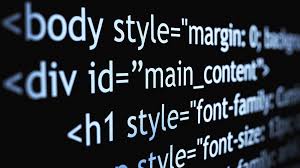Students Should Learn to Code Because it is the Language of the Future

Computers and software are taking over the world. Programming is now required in many jobs, and most students have free access to PCs, laptops, tablets, and smartphones. Many of the projected STEM (Science, Technology, Engineering, and Math) jobs involve computers, and there is an increasingly high demand for employees who can write computer programs. This means that students should learn to code while still in school because it is the language of the future. But what can we do to encourage and support computer science in our schools?
Today, the schools teach students how to utilize ICT (information and communications technology) as a consumer, rather than using it as a programmer. On the other hand, the tech-savvy world tends to develop technological innovations by building and encouraging literacy in keeping with modern living. For that reason, we must teach our students to use code. The market changes really quickly, and those who know how to code will have an advantage when looking for a job.
Students should have the opportunity to acquire new knowledge and skills through computer science. Our children should keep up with new technologies by learning, thinking, and exploring. Today’s job market offers a wide range of computer-related job opportunities, and employers are seeking experts. We must wake up and be on a par with our technology-based world in building new prospects and innovations.
Have you heard of Lim Ding Wen? He is a seventeen-year-old boy from Singapore who, at the age of nine, became the youngest iPhone software developer in the world by creating a drawing application called Doodle Kids that is compatible with the Apple IIGS. His example could be successfully emulated if we encourage our children to start learning to code early in their lives. This way, we are likely to create a lot of future gifted technopreneurs.
Computer science already exists as a subject in schools in some countries; however, school systems need to focus on the creation of new software, rather than just simply using the existing tools and software. In addition, we should address the setting and development of computer science standards with teachers.
The same goes for coding. We can embolden and support those students who want to learn to code. Luckily, there are a number of coding tutorials readily available online that offer involves free applications and services. You do not have to be a genius to understand code—even six-year-olds can start learning the basics.
One of the most important events in this field is The Hour of Code. It was launched during Computer Science Education Week in 2012 and provided basic coding tutorials to people from ages 4 to 104. Some big names in the computer technology field, including Bill Gates and Mark Zuckerberg, were featured in these tutorials. By programming the movements of popular game characters (such as the Angry Birds), participants experienced simple coding. More than 150 countries participated in the Hour of Code, and it became one of the biggest efforts in the history of computer science to bring together people interested in learning code program language. Hopefully, these events will continue in the future.
Computer sciences and technological innovations are rapidly progressing these days, and that’s why new STEM skills need to be obtained concurrently. The fastest and simplest way possible is certainly via the Internet. Coding tutorials can’t wait for translations.
Science requires the setting of new trends by stimulating like-minded people and companies to cooperate in developing new technologies. Without computer software and applications, nothing much works. Therefore, we must teach our students to code. This is the future, and so are our children.




